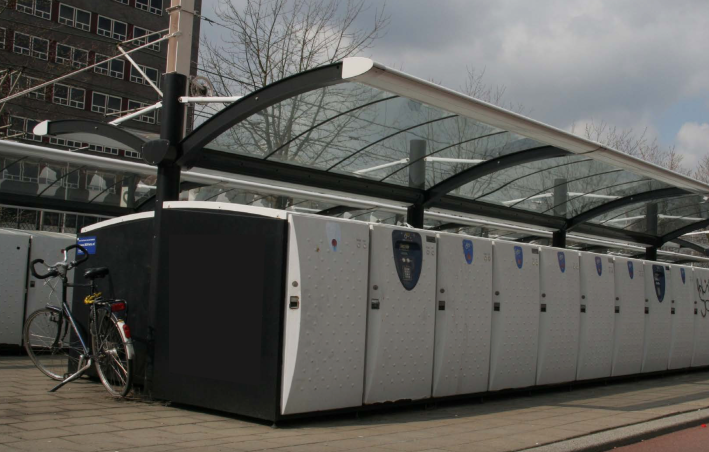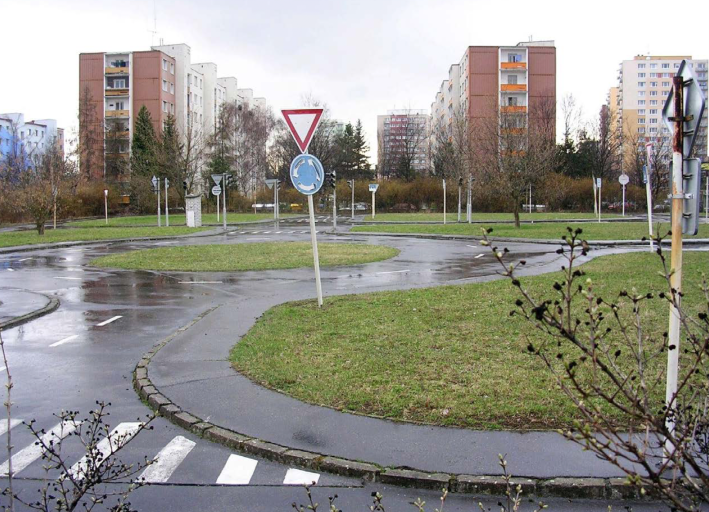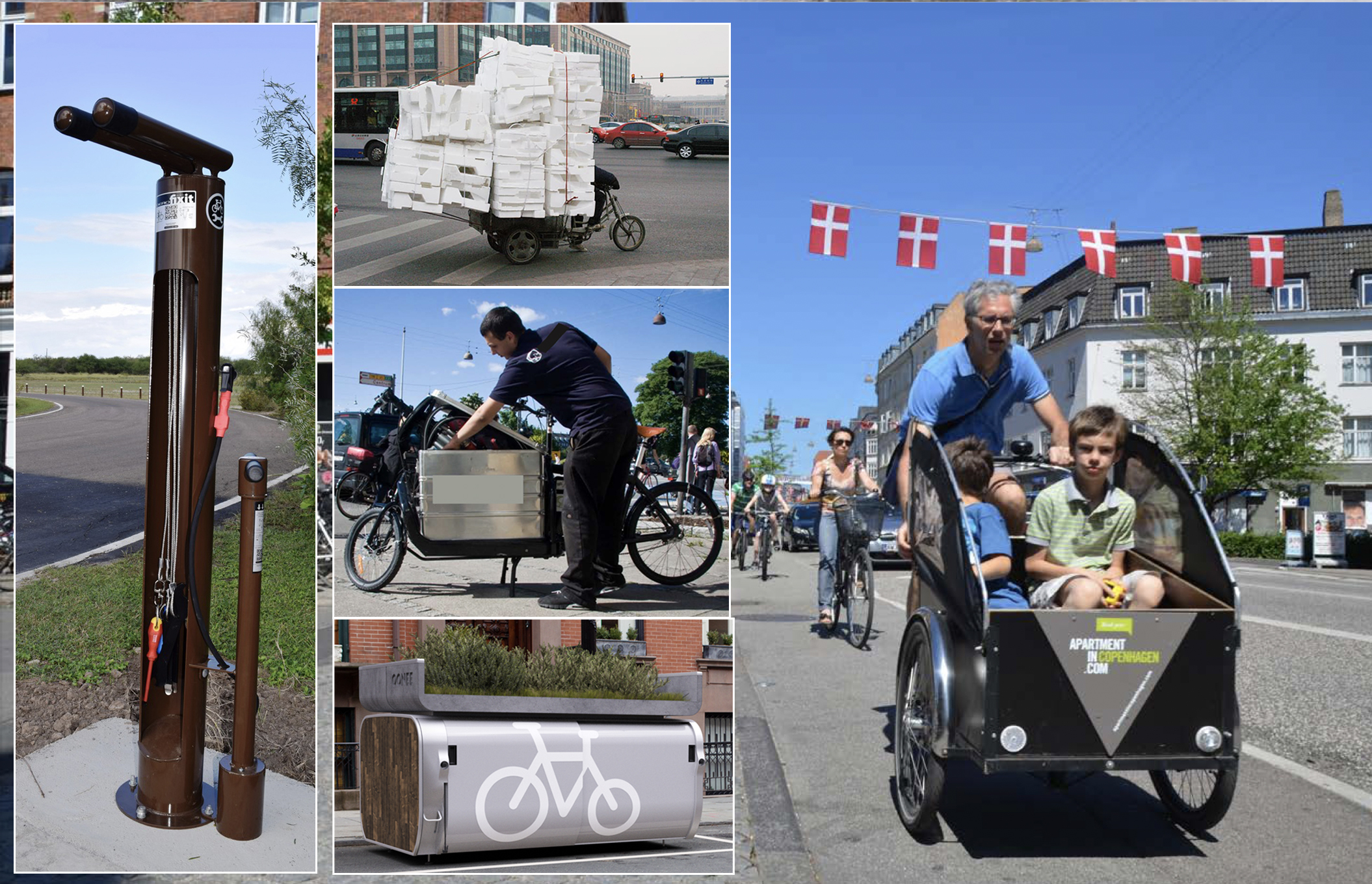Is the city finally trying to go big on bikes?
The Department of Citywide Administrative services on Thursday quietly dropped a doorstop of a "request for expressions of interest" from would-be entrepreneurs who can make New Amsterdam a heck of a lot more like original Amsterdam by setting up bike repair and rental facilities, cargo-bike rentals, secure bike parking and even traffic safety "gardens" on the agency's portfolio of city lots — in short to "support New York City’s cycling ecosystem," the agency said.
In its blandest terms, the 52-page RFEI only seeks to "solicit information and feedback from interested parties regarding commercially and technologically viable solutions for the provision of bicycle-related goods and services on property owned by the city of New York," but other parts of the document get far more poetic about the kind of transformation the city wants.
"DCAS seeks ... solutions whose result would be the provision of bicycles — whether new or recovered — to most or all city residents," reads the section on "Bike Supply, Recovery, and Repair" [emphasis added].
In its eight-part solicitation, the agency says it wants:
- "broad availability of bike rentals at reasonable cost" (in the section on Bike Retail and Rental).
- "the creation and operation of facilities for remanufacturing, repairing, and maintaining large numbers of bicycles" (Bike Supply, Recovery, and Repair).
- "self-serve and full-serve small-scale bike repair facilities" (Small-Scale Bike Repair).
- "facilities on city property at which customers will be able to rent cargo bikes" (Cargo Bike Rental).
- "facilities at which customers will be able to securely park bikes, e-bikes, cargo bikes and other bicycle-based freight vehicles" (Secure Bike Parking).
- "the creation and operation of ... last-mile commuter bike rental facilities where a user can rent a bike (or possibly an e-bike) for a round trip between (a) a public transit stop and (b) a destination (or origin point) up to a few miles away" (Last-Mile Bike Rental).
- "a car-free place where children up to around early middle-school age can become accustomed to navigating streets by riding or driving child-friendly vehicles, often including bikes" (Traffic Gardens and Amusements)
- "a system or network of facilities involving containers suitable for transport via cargo bike." (Last-Mile Cargo Bike Container Relay Facilities)
“A safe, accessible, and thriving biking ecosystem is essential for our city’s future,” DCAS Commissioner Dawn Pinnock said in a statement slipped to Streetsblog on Thursday. “We want to tap the ideas and creativity of New Yorkers to transform underutilized city properties into resources to support cycling across the five boroughs.”
The goal, Pinnock's statement added, is to "find ways to make it safer, easier, and more convenient to bike New York City and to alleviate congestion on city streets."

How any of this would work — how it would be "commercially viable," as the RFEI continually repeats — would be up to the various businesses and entrepreneurs who might end up submitting a formal proposal down the line. For now, the city is only seeking initial interest, but clearly existing companies will be expected to have off-the-shelf solutions given that final responses to this RFEI are due on Oct. 21, one month from the document's publication on Thursday.
Don't worry — such companies exist.
""It’s really exciting to see city agencies like DCAS recognize that secure parking facilities are absolutely fundamental for cycling transportation," said Shabazz Stuart, the CEO of Oonee, the bike parking company. "One out of every four households in New York has experienced the theft of at least one bike. Solving this challenge will broaden the appeal of cycling for millions of New Yorkers. We look forward to sharing our comprehensive vision for a citywide bike parking system and charging system with DCAS in our response to the RFEI."
And a spokesman for the Lyft-owned Citi Bike system said the company also saw the RFEI.
"We’re reviewing it," said Jordan Levine.
The DCAS solicitation, which several city transportation insiders said they didn't see coming, appears to put in one place several existing city initiatives and pilot programs. For example, Citi Bike already operates bike rental station on city property in Manhattan and portions of The Bronx, Queens and Brooklyn. Oonee recently completed yet another pilot program with the DOT to create on-street bike parking. The DOT recently published its own request for expressions of interest for freight companies to weigh in on what they want the city’s future micro-distribution hubs to look like.
And it's not as if New York is revolutionary with any of these solicitations. Solutions to all the problems outlined in the REFI have existed for many years all over the world.

"At some gas stations in Copenhagen, one can find a several-foot-wide 'cykelpleje' (bicycle care) installation fixed on an outdoor wall," the RFEI said in the section on small-scale bike repair. "In some countries, especially Denmark and the Netherlands, people are more likely" to use a cargo bike to move "a sizable item (perhaps electronics, furniture, or a household appliance).
"In some parts of the world ... a public transit traveler can rent a bike for the 'last mile' from the station to destination and back," the RFEI adds. "These are known as 'BiTiBi' (bike-train-bike) services if a train is the mode of public transit used by the customer. Well-developed examples include OV-Fiets in the Netherlands and Blue-Bike in Belgium."
The city RFEI is written in a way that expresses genuine wonder at a world where biking is fully integrated into urban life and culture — and indeed bemoans that "the rate of bicycle ownership in New York City is significantly lower than it is in many other cities."
What happens next is anyone's guess. The RFEI makes clear that it is only "preliminary in nature" and is, ostensibly, a brainstorming session with private industry. In the end, the city admitted that it may not even lead to the issuance of a formal "request for proposals" to actually implement any of the ideas offered.
"DCAS reserves, without limitation, the right to withdraw the RFEI at any time [and] not issue an RFP or other solicitation," it states.
Language like that tempered the enthusiasm of some transportation insiders.
"Who knows what this is — it's not coming through DOT, it's not widely publicized, no one saw it coming," said one insider, who requested anonymity because he often gets city contracts. "Is this a real thing, or is this something you put out to say, 'See? We're doing something?'"
But DOT Commissioner Ydanis Rodriguez was bullish on his brother agency's effort.
“This RFEI is the next natural step for us to find ways for city-owned properties to both accommodate the cycling boom and support its continued growth," he told Streetsblog in a statement. "We thank Commissioner Pinnock and our partners at DCAS for this creative effort — and we are excited to hear how stakeholders will tap this market and to see how their responses might inform our work going forward.”
Correction: An earlier version of this story said that DCAS declined to comment. Obviously, that is untrue.






